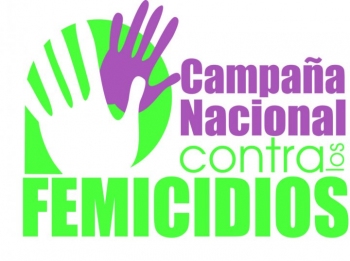By Nick Caistor, LAB
 The number of women being murdered in Honduras has risen dramatically in recent years, but the authorities continue to refuse to take the problem seriously.
The number of women being murdered in Honduras has risen dramatically in recent years, but the authorities continue to refuse to take the problem seriously.
According to a recent report by the Tribunal of Women Against Femicide, a group of women’s NGOS in Honduras as many as 351 women met violent deaths there in 2010.
Although this is slightly down from the figure of 407 in the politically turbulent year of 2009, it means that Honduras is the third most violent country in Central America with regard to women’s deaths after Guatemala and El Salvador.
Only 24 of the more than 400 cases of femicide in 2009 reached the courts. This has increased women’s groups belief that the authorities systematically downplay the importance of this kind of gender-based crime.
Francisco Murillo López, then head of the Dirección Nacional de Investigación Criminal (National Criminal Investigation Bureau) even went so far as to consider this increase in the murder of women as ‘normal’.
He argued that this upsurge came as the result of Honduran women playing a more active role in society: ‘for example, nowadays we can see women driving taxis, or buses. This shows how Honduran society is changing, and so it is normal that women get killed,’ he told a local newspaper in 2010.
The women campaigning against this violence against women, which mainly affects those aged between 16 and 30, see this kind of response as part of the problem:
‘This is a way the authorities have of minimizing the problem and claiming that those responsible are the women themselves. They say they were killed because they were doing this or that, when in truth nothing can justify killing a woman, especially when there are so many similar deaths,’ according to Caroline Sierra of the Foro de Mujeres por la vida in San Pedro Sula, Honduras’ second city, where in the first two months of 2011 a further 20 cases of femicide were reported.
She goes on: ‘We have to consider the impact on women in Honduras in general, the ones who give up their studies because they don’t want to be out at night, the ones who live in constant fear not only for themselves but for their families, the ones who emigrate to other countries…what sort of a life can a country have where half the population is seen as having no value?’
Her view is corroborated by Dalila Aguilar, from the Coordinadora de Mujeres Campesinas de la Paz (COMUCAP):
‘Honduran women are murdered because they are women, because of the way that men consider us, because of our machista, patriarcal culture. Often they are killed because their male partners are involved in organised crime or in drug trafficking, and they pay the price.’
This has led to the women campaigning against impunity in these cases to insist there needs to be radical change in society as a whole:
‘Femicides have a political dimension, and we are demanding structural changes with regard to attitudes towards women. We have to think of the victims as people, not as numbers or statistics. We have to revindicate the person. To acknowledge femicide is to consider those lives cut short. The lives of all Honduran women are at stake, because femicides limit development, democracy, and peace. This is not a matter merely for the families of the victims, or women in general, but for the entire country: the State must do something,’ says Maritza Paredes, a leader of the Foro de Mujeres por la vida.
The campaign to get the Honduran authorities to take violence against women more seriously has been growing throughout the past decade.
According to Oxfam International, which has backed the women’s groups and helped published their report in August 2011, since the year 2000 the judicial authorities have received more than 34,000 complaints from women about domestic violence. Even more shockingly, three out of ten women who make these complaints are later killed.
The report, entitled Impunidad: un grito sin respuesta (Impunity: An Unanswered Cry) ends by calling for sanctions against any officials who disregard the seriousness of complaints about violence brought by women.
It also recommends a study be made of the sentences handed down for any femicide or violence against women cases that reach the courts, and calls for a direct link to be established with the Inter-American Court of Human Rights so that alleged cases of impunity can be considered by this powerful regional body.
As Gladis Lanza, another of the campaigning women says: ‘The system in Honduras educates us to think that violence is normal and that we women were born to suffer. Our task is to unmask that system, because violence against women is never justified’.
See also: Impunidad: Un Grito sin Respuesta, Informe Final de femicidios en Honduras 2011
Foro de mujeres por la vida, Zona norte

